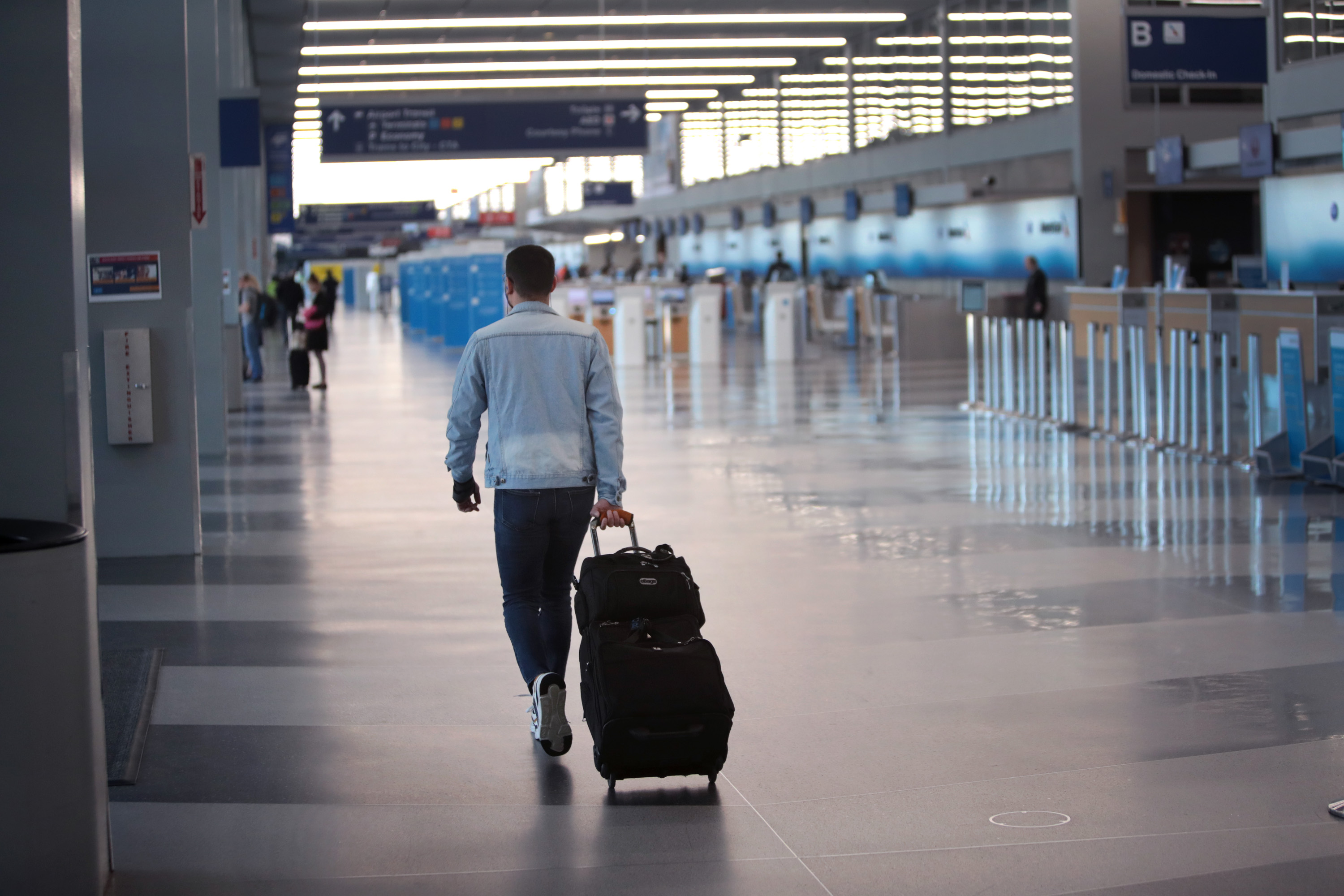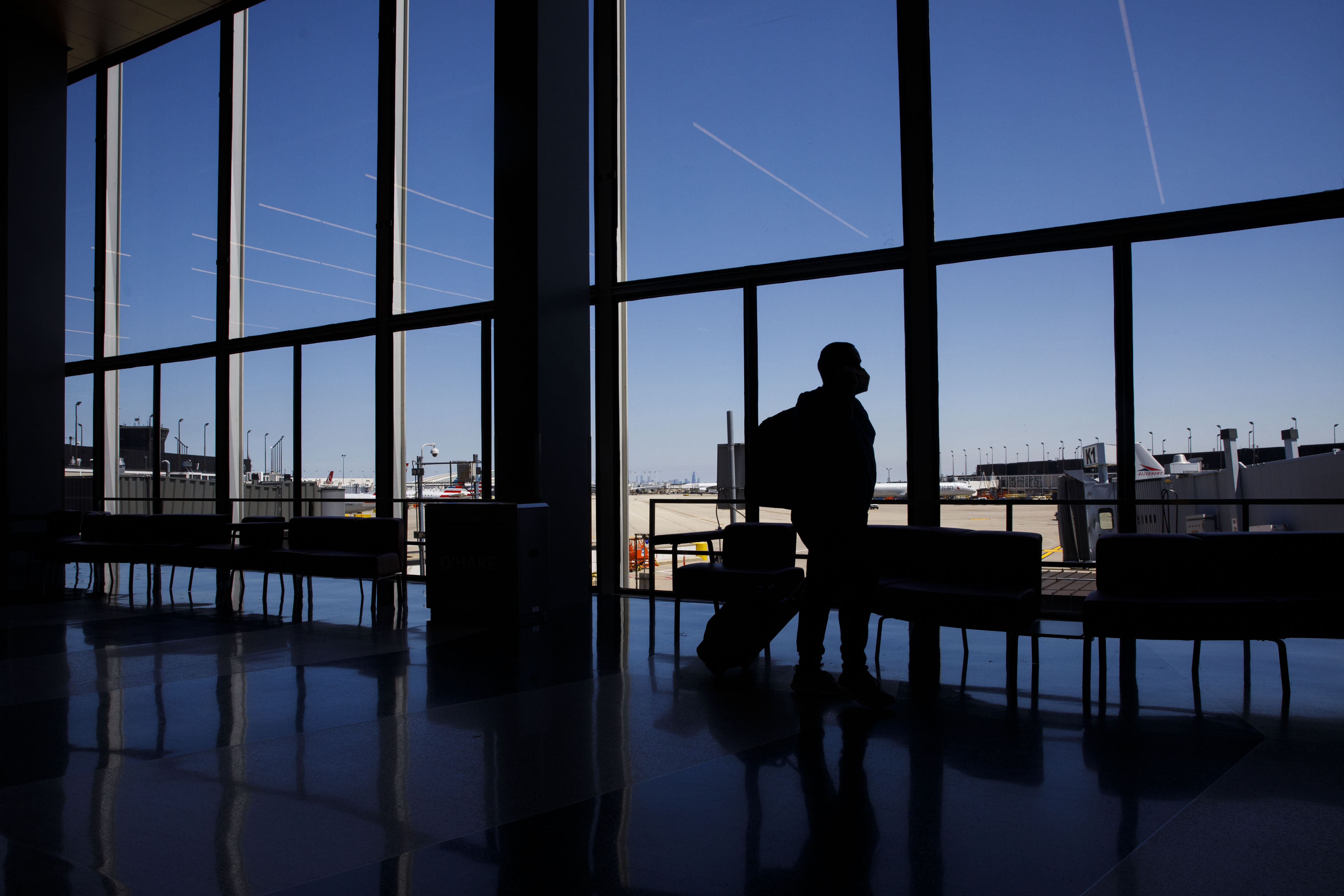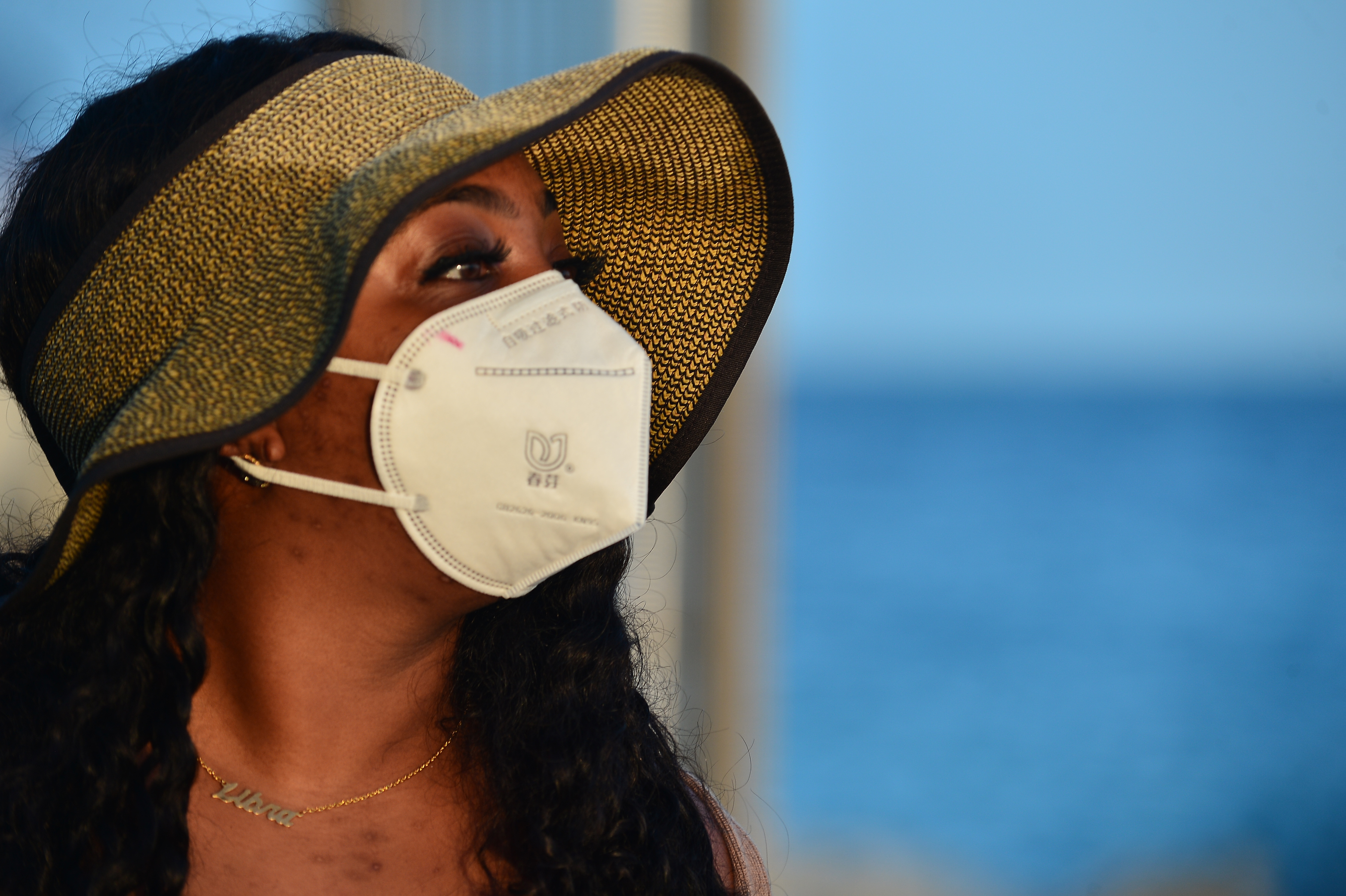Four states, including Wisconsin, were added to Chicago's emergency travel order Tuesday, requiring anyone visiting or returning to the city from one of now 22 states to self-quarantine for 14 days.
According to the mayor's office, Wisconsin, Missouri, North Dakota and Nebraska are all being added to the order, effective Friday.
According to city health officials, essential workers and those commuting from Wisconsin to Chicago for the purpose of work will be exempt from the quarantine, but will be asked to follow these requirements:
- They must limit their activities to work-related activities and functions that directly support their work, and avoid public spaces as much as possible.
- They should monitor their temperature and for any symptoms, wear a face covering when in public, maintain social distance, and clean and disinfect workspaces.
- They are required, to the extent possible, to avoid extended periods in public, contact with strangers, and large congregate settings.
The order will apply to anyone coming from Wisconsin to Chicago for "non-work purposes" as well as Chicago residents returning from Wisconsin who are not deemed essential workers, the city said.
Exceptions can be made for those traveling for medical care and parental shared custody. Anyone traveling through Wisconsin on their way to Chicago from a state not on the travel order will not need to quarantine if they were in Wisconsin for less than 24 hours, officials said. Still, non-essential workers who travel to Wisconsin, even for less than 24 hours, will need to quarantine upon returning, the city said.
Chicago's mayor had announced Monday that Wisconsin was being added to the list this week, but noted that the city was also watching its neighbors "very carefully."
"I think Chicago, we are doing well because we were extremely prudent when we started to reopen up," Lightfoot said. "We didn't go as large with capacity, for example, as other areas across the country. So what we're seeing is cities and towns, particularly across the south through the southwest and on to California are really having significant struggles now because many of those communities took a very different approach to the one that Chicago took. We're also seeing an increase in states around us. Wisconsin, for example, is going to go on our quarantine list later this week."
The city's travel order is evaluated every Tuesday, with any additions taking effect the following Friday.
Last week, city health officials warned that Wisconsin was "very close" to being added to the list of states the city requires a quarantine from.
"When I talk to folks in Wisconsin… we know people are not wearing masks there at the level they are here in Chicago," Chicago Department of Public Health Commissioner Dr. Allison Arwady said at a news conference last week.
States are added to the list if they have "a case rate greater than 15 new COVID-19 cases per 100,000 resident population, per day, over a 7-day rolling average."
Wisconsin health officials reported 957 new confirmed cases of the coronavirus and one new death on Sunday. The Wisconsin Department of Health Services now reports 48,827 people have tested positive for the virus in the state since the pandemic began. The newly reported death raises the death toll to 892.
Wisconsin's governor said residents "should take [the warning] seriously."
Gov. Tony Evers said Thursday while the order may not keep people from crossing the border between the two states, "it's more of a message issue."
"It's difficult to prognosticate what they're going to do in Chicago, but the fact of the matter is, there are folks - let's put it this way, it's very difficult to regulate state boundaries, or in this case, the city of Chicago boundaries versus the boundaries of Wisconsin," Evers said. "There's lots and lots of people that live in Illinois and live in Chicago that do work regularly in Wisconsin and vice versa. And I anticipate that that will continue to move forward. But... a message for us in Wisconsin should be if Chicago thinks our people should stay home, then we better put some damn masks on and make sure that we continue to, or to reverse the course that we're in."
Chicago's travel order, which began on July 6, is assessed every Tuesday to determine if states should be added or removed from the list of locations travelers must quarantine from.
Recent additions to the order include Kansas, Oklahoma and Iowa.
Other states included are: Alabama, Arkansas, Arizona, California, Florida, Georgia, Idaho, Louisiana, Mississippi, North Carolina, Nevada, South Carolina, Tennessee, Texas, and Utah.
"We're watching all of our neighbors very, very carefully and we're going to be very prudent," Lightfoot said Monday.
She noted, however, that Indiana likely wouldn't be added this week.
"Indiana doesn't quite rise to that level, which is a good thing for the residents of the Hoosier state but we're watching all of our neighbors very carefully," she said.
Arwady said travelers entering or returning to Chicago from "states experiencing a surge in new COVID-19 cases" will need to quarantine "for a 14-day period from the time of last contact within the identified state." Essential workers could be exempt from the quarantine requirement, however, as long as their employer certifies their work in writing.
The order is set to remain in effect until further notice.
The move comes as states across the U.S. see surges of coronavirus cases, many shutting down bars and restaurants in an effort to quell or prevent a spike.
New cases have surged in several states across the nation, setting new records, driven mostly by expanding outbreaks in the American South and West.
New York and New Jersey are also asking visitors from several states from the Carolinas to California to quarantine themselves for two weeks.
Still, outside of Chicago, Illinois Gov. J.B. Pritzker said the state likely won't require residents who travel to and from neighboring states to quarantine for two weeks solely because of that travel.
"We don't live in a country where you close the borders between states," Pritzker said during the governor's coronavirus briefing. "And we're not going to stop people who live in Illinois and work in Wisconsin from doing so."




